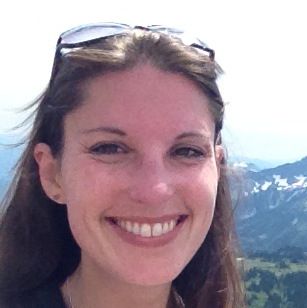Page 376 • (12,453 results in 0.033 seconds)
-
Introduction This philosophy describes the beliefs and perspectives of the faculty of the School of Nursing at Pacific Lutheran University. Student development and learning are our primary focus. The School of Nursing philosophy embraces the vision and mission of Pacific Lutheran University for thoughtful inquiry, service, leadership, and care. We purposefully integrate liberal education with the study of nursing, scholarship, and civic engagement to foster compassion and meaningful service for
-
Now Hiring Students for the '23-'24 Academic YearThe Center for DJS is hiring for the 2023-2024 academic year! Students working with the Center for DJS are key contributors to the education, mentorship, community building, activism and promotion of diversity, justice, and sustainability at PLU. On this page you will find the various paid and scholarship positions, descriptions, and links to apply. If there is a position that sparks your curiosity, we encourage you to apply! If you have
-
Learning Outcomes*Effective January 2019* Upon completion of their degree, Religion majors will be able to: Explain “Religion” as a category of analysis in academic contexts, identifying when and how religious beliefs, interpretations, and practices shape human life, culture, and history, as well as how they change over time. Analyze religious traditions and expressions within their historical, social, and cultural contexts. Describe an array of academic tools or methods in the study of
-
Conference SpeakersDr. Samuel TorvendDr. Marit TrelstadDr. Heather MathewsDr. Lisa MarcusDr. Seth DowlandRabbi Bruce KaddenDr. Samuel TorvendWho: Dr. Samuel Torvend, Professor Emeritus of Religion, PLU and Priest for Adult Formation at Christ Church Episcopal Bio: Samuel Torvend teaches courses in the history of early, medieval, and reformation Christianity as well as historical courses on the reform of social welfare, Christian responses to local and global hunger, Christian art and
-
Institutional Equity and Anti-racism at PLU At the June 17 University Assembly for faculty and staff, Vice President Joanna Royce-Davis shared a set of seven actions the university will take next to “make sustainable change in the experience of our community for our members who experience marginalization.” Words without action are empty, and compromise our mission and our moral and ethical obligation to each other and to our students. Action, along with accountability, truth, healing, and
-
Student Life Strategic PlanStudent Life Strategic Priorities 2012-2015 #2 - Enhance Student Achievement and Success1. Advance the education, career, and vocation planning initiatives. Expand the collaborative efforts of the multiple offices and centers involved in the work of assisting students with identifying and attaining their educational goals and developing their vocational and career paths. Goal by May 31, 2020: Increase PLU student utilization of the services available for educational
-
English Department Learning Outcomes - effective January 2019 Literature Major, Minor, and General Education Coursework Reading. Students will interpret texts with attention to ambiguity, complexity, and aesthetic value. Writing Process. Students will practice a deliberate writing process with emphasis on inquiry, audience, research, and revision. Genre and Rhetorical Situation. Students will evaluate genres of writing and write in appropriate genres and modes for a variety of purposes and
-
Give to Wild Hope We are grateful for the alumni, friends, staff, administrators, and faculty whose generosity makes possible the work of the Center for Vocation. Since Wild Hope programming is not financed by the PLU operating budget, we rely on donations to support our Wild Hope Students Fellows, the Staff Seminar in Vocation, Faculty Workshops on mentoring students in vocation, and securing the latest Lutheran, ecumenical and interfaith resources on Vocation. Donate to Wild HopeWe are
-
Political Science Learning ObjectivesRevised 12/18/18 Learning Objectives100 Level200 Level300 Level400 Level Substantive knowledge in the Discipline.Define and describe the basic political processes and institutions of government including definitions of politics.Apply the central concepts to the role of various actors including citizens, interest groups, political parties, and politicians within political systems.Apply the central theories and concepts in independent research.Convey
-

Suzanne Crawford O’Brien Professor of Religion and Culture Phone: 253-535-8107 Email: suzanne.crawford@plu.edu Office Location: Hauge Administration Building - 227-C Status:On Sabbatical Curriculum Vitae: View my CV Professional Biography Education Ph.D., University of California, Santa Barbara, 2003 M.A., Vanderbilt University, 1997 B.A., Willamette University, 1995 Areas of Emphasis or Expertise Native American Religious Traditions Religious Diversity in North America Health, Healing, and
Do you have any feedback for us? If so, feel free to use our Feedback Form.


